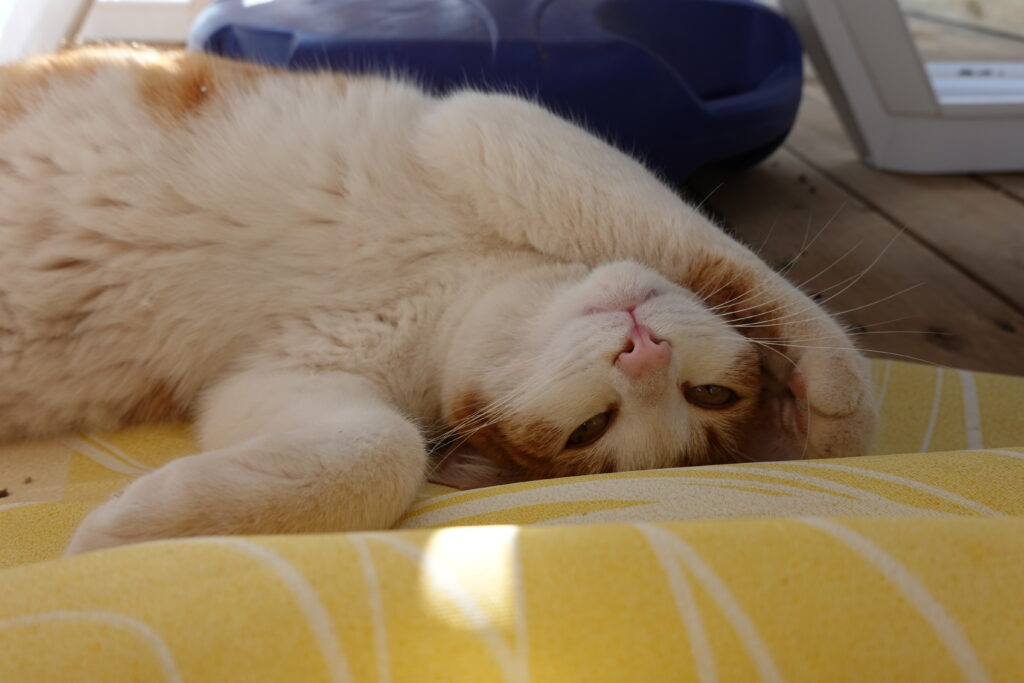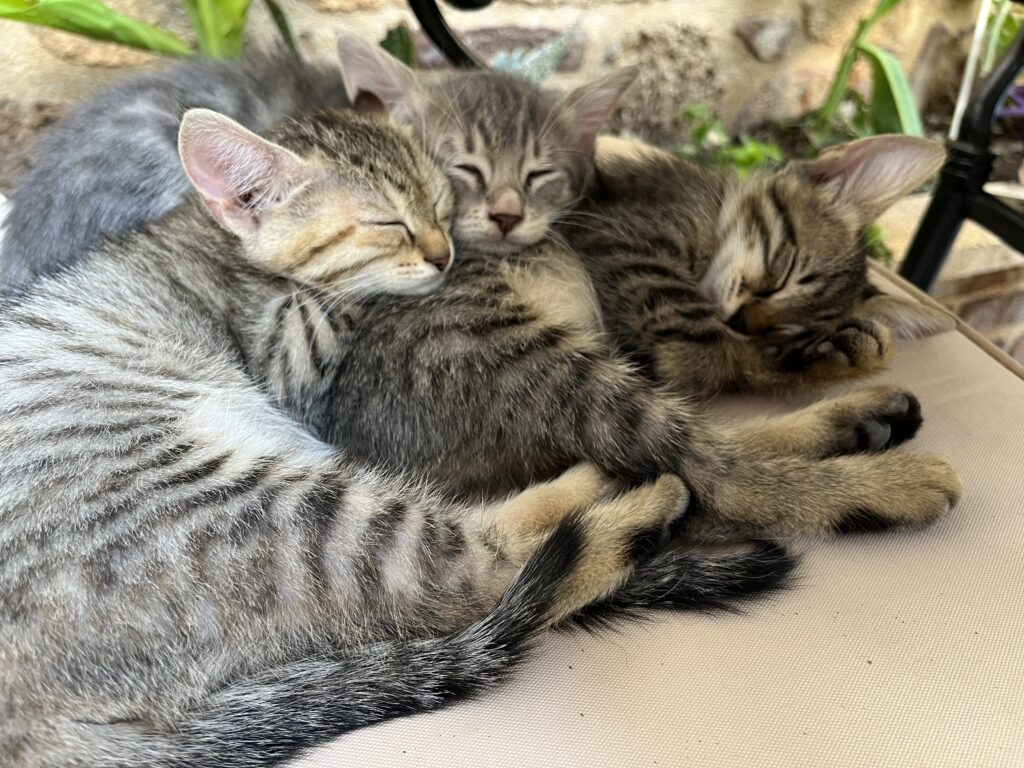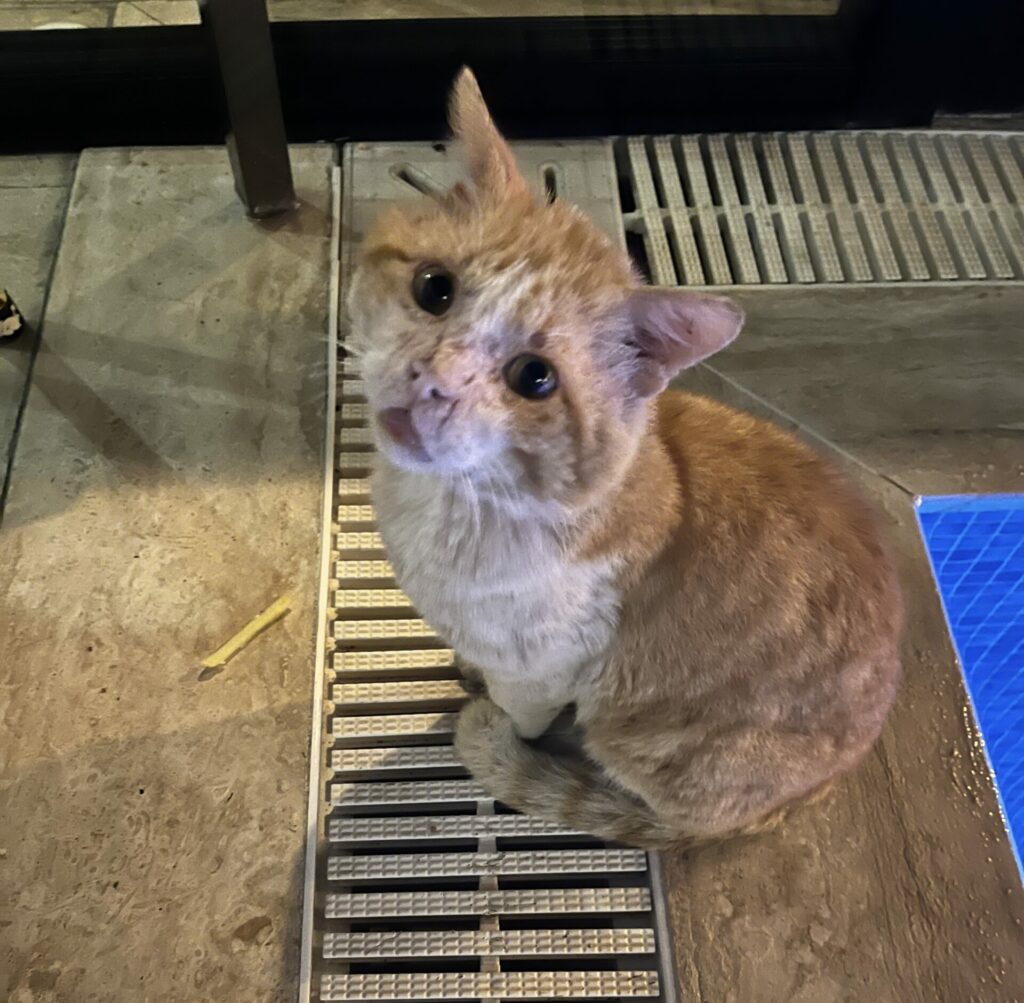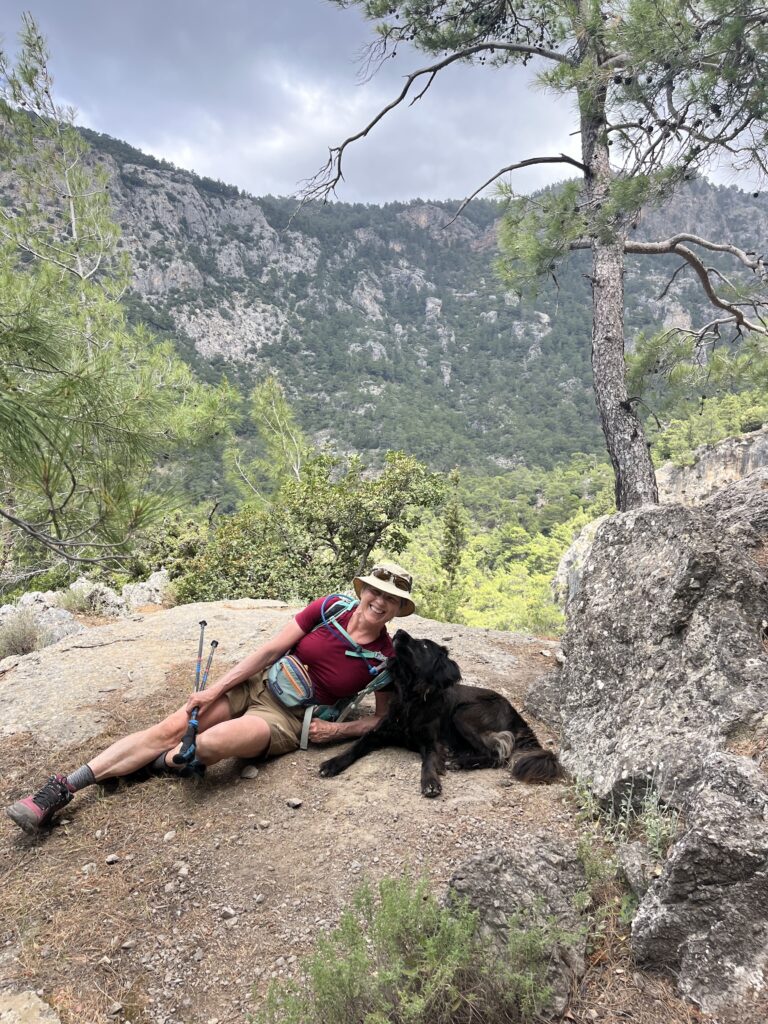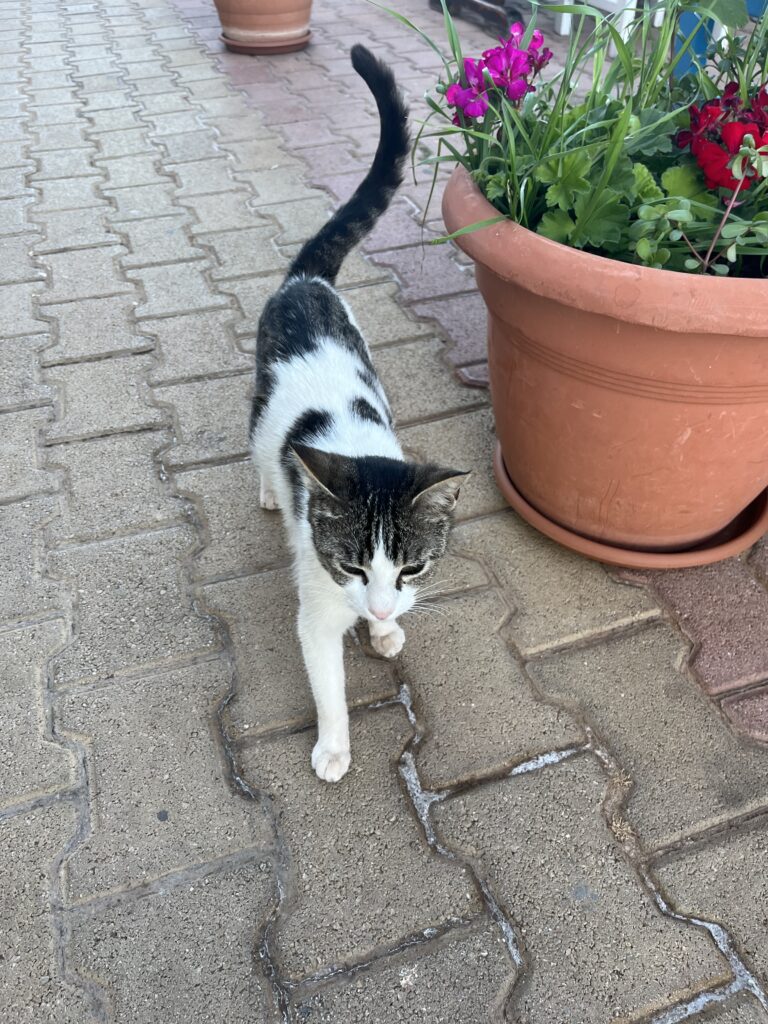
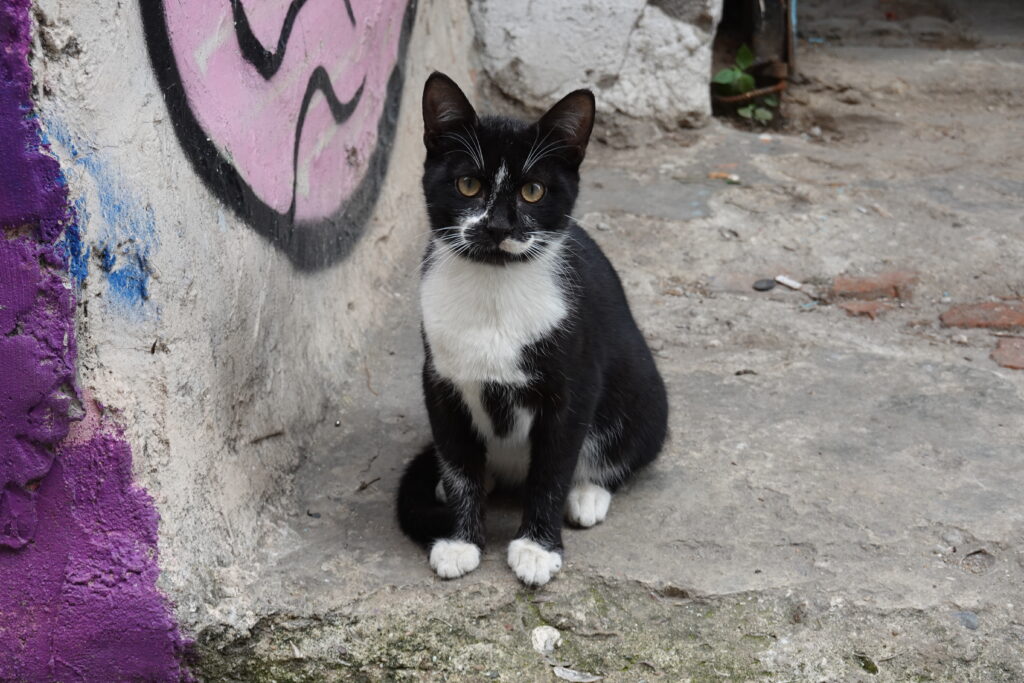
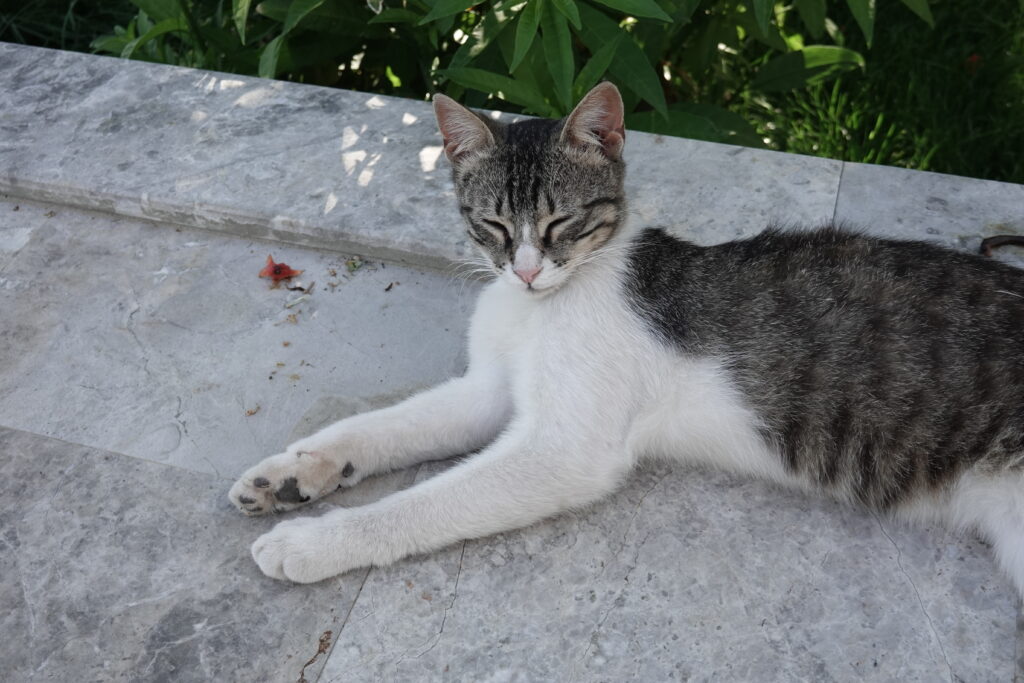
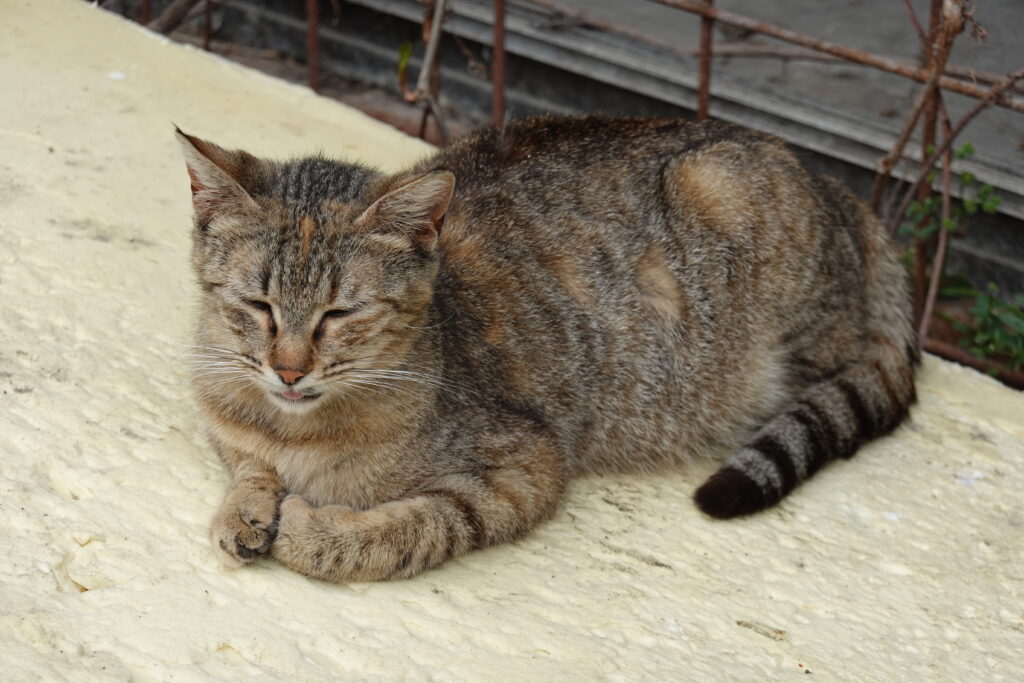
Cats own the neighborhoods in Turkey. In Istanbul they lounge in doorways and catwalk across ledges. They bask in the sun on the marble slabs of Ephesus. In many towns they wander among restaurant tables and snooze in hotel gardens.
Cats have been loved and protected in Turkey since the Ottoman Empire. Some cats are pets and have permanent homes. But most live on the street and are looked after by the community. When we asked one of our guides about the cats, he said, “We take care of our own. Do you see any homeless people?”
In Faralya I met a lovely orange and white cat down by the sea. I petted it, and it fell asleep on the sailcloth under my lounge chair. Later that evening, we were in a restaurant when the same cat wandered in. The restaurant owner told us, “When I opened, I told her to come by every day.” She, along with a few other cats, waited patiently for him to feed them dinner.
The night before I flew to Istanbul, I saw a film called Kedi about the cats of Istanbul (“Kedi” means “cat” in Turkish). The cats featured in the film live outside and are clearly beloved by the people around them. The people seem to feel privileged when cats grace their homes or stores. One person said, “A cat meowing at your feet, looking up at you. Is life smiling at you? Those are moments where we’re lucky. They remind us that we’re alive.”
The film shows several cats and the people who care for them. A man says a cat saved his life, keeping him from being lonely after a catastrophic loss. A woman who suffered a severe illness spends her mornings cooking enough food to feed dozens of cats. She then delivers it all over town, where cats expect her and greet her. It is part of her healing process. A restaurant owner says the cat he feeds every day pays for its keep by catching mice.
I am a cat lover, so I was attracted to the stray cats we saw in the towns we visited. Most were not interested in being petted, at least by strangers like me. But many would allow themselves to be cuddled and stroked by shop owners, who knew and were fond of these cats. I found myself sharing photos of my two cats with these cat lovers.
In my hotel in Antalya, the resident cat had just had a litter of kittens. They tumbled together in mock fights in the hotel’s garden courtyard and then splayed out to nap under a table. When I came down to breakfast in the morning, I found a jumble of kittens asleep in one of the lobby’s armchairs. It appeared that they lived with their mother under a cabinet in the courtyard.
One night we ate in an upscale seafood restaurant, and a battered cat parked itself next to my chair. Nobody shooed the cat out of the restaurant. I ended up giving it all of the fish skin from my dinner. I became part of the community, caring for a cat.
Turkish dogs
There are stray dogs in Turkey too. We often found dogs sprawled on the sidewalk, sound asleep in the sun. Some wore ear tags; those dogs had been neutered and vaccinated. A public welfare fund supports sterilization and medical care for stray dogs. While we didn’t see people petting dogs, it was clear they were being fed. It appears that, like the cats, the community provides food and some kind of shelter.
The kindness to dogs and cats comes from Islam. (Turkish is 99 percent Muslim.) According to the BBC, Muslims believe that all living creatures were made by Allah and animals must be treated with kindness and compassion. “There is not an animal on earth, nor a bird that flies on its wings, but they are communities like you…” — Qur’an 6:38.
One day on the Lycian Way a handsome black dog started hiking with us. He would pick one of us and hike behind us for a while, then choose someone else. I talked to him when he showed up to hike with me, and we all became fond of him. Sonya dubbed him Fred. If someone had cleaned and brushed him, this smart and friendly dog would be a showstopper. We discussed what might be involved in taking him home from Turkey.
After several hours we began to worry about how far he had traveled. When we stopped for a snack we gave him all of our extra lunch food.
Our hiking trail eventually opened onto a dirt road. Fred was ahead of us at that point. Suddenly three large dogs dashed out and assaulted him, snarling, growling and leaping. A woman yelled at the dogs in Russian and pulled them off Fred. We weren’t sure if the dogs had managed to draw blood.
It appeared that the woman and her male companion, also Russian, lived in a small compound nearby. We wondered why they were in this remote place and who or what the dogs were protecting them from.
Fred disappeared after that. We were concerned about him being alone, lost and hungry, hours away from where we had met him. Our driver said not to worry; dogs would commonly join hikers and eventually find their way home. That gave us some comfort.
We wished Fred could tell us that he was OK. Perhaps he was unharmed and would find another group of hikers the next day to provide him with company and food.
A review of Kedi said, “I thought “Kedi” was about cats, but in retrospect I can see what [director Ceyda] Torun was really after: It’s a movie about how animals can bring out the kindness in people. As an old man says in the film, ‘Everything is beautiful if looked at with love.’”
